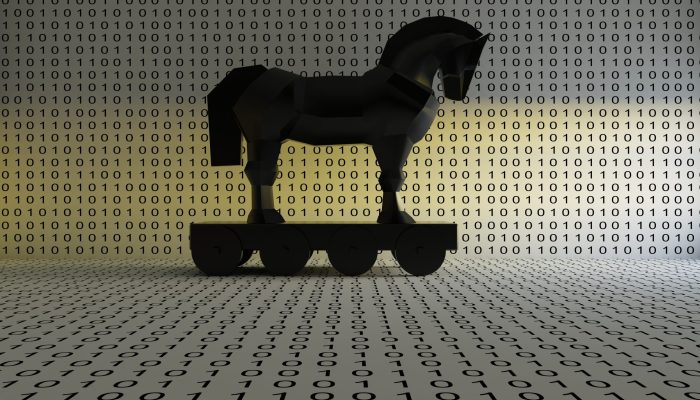
The Trojan gets its name from the fact that this form of malware disguises itself as a harmless software. From this software, the Trojan then spreads on the device and causes the damage there. The danger from Trojans is still very high and it is not easy to detect the danger in advance.
Trojans come in different forms. The goal can be to detect data stored on hard drives, block files in order to release them again in exchange for a payment, or even install paid services on the device. Also widespread are Trojans that infect the computer, pretending to be some other form of threat and thus encouraging it to install expensive software that acts against this alleged threat.
The Trojan itself always disguises itself as another program. That is where the name comes from. The Trojan works like the famous Trojan horse that the Greeks offered as a gift to the Trojans, only to be hidden inside. At night, the Greeks left the Trojan horse and were able to attack the Trojans within their own city walls.
So inside the digital Trojan horse is a digital attacker that cannot be detected beforehand. The gift in this case is the supposedly useful program in which the Trojan is hiding. The Trojan does not attack the city, but the system.
Sometimes it is even the case that the useful program actually serves the promised purpose. At the same time, of course, the Trojan is let loose to do its evil deeds.
Detecting Trojans is extremely difficult. They come in different forms and disguise themselves in different ways.
However, there are certain clues that indicate that you might have caught a Trojan.
The first warning sign is the email inbox. Emails with attachments or links are basically dangerous. Attachments and links that come from unknown sources should never be clicked. This is the first door for Trojans to enter your computer.
If there is already a Trojan in the system, it is usually noticeable by the computer becoming unusually slow. After all, the Trojan is an additional program that also eats up resources. And often not too little. As a result, your computer can be slowed down considerably. To find out if programs are running that you have not opened or even installed, you can check Task Manager.
If strange or unknown pop-ups are displayed, they can also come from a Trojan in the system.
The same applies if files suddenly disappear or have been moved to other folders. Trojans lock files or re-sort them so that they can be restored for a payment or by downloading additional software for a fee.
Basically, you can say that any unusual behavior on the computer can indicate a Trojan. The best thing to do then is to have an antivirus program scan your computer right away.
Trojans are among the most harmful programs that can spread on a computer. Detecting them is not easy, but you can protect yourself from them in some ways.
Above all, you should not click on unknown sources. You can also protect your own data by storing it on an external hard drive or in a cloud. If the computer is infected, the data can then be easily restored after the malware has been removed.